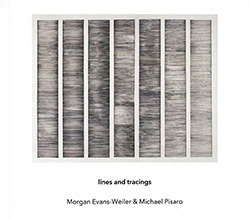
Two compositions, one by composer Michael Pisaro-Liu and performed by the electroacoustic ensemble "Ordinary Affects" including violinist Morgan Evans-Weiler, then an acoustic composition from Evans-Weiler himself performed with violin, clarinet, cello, harpsichord and piano; both exquisite works that draw out tone and time in patiently unfolding fluidity.
Out of Stock
Quantity in Basket: None
Log In to use our Wish List
Shipping Weight: 3.00 units
Sample The Album:
Katie Porter-bass clarinet
Laura Cetilia-cello
Michael Rosenstein-prepared cello
Michael Pisaro-Liu-Liu-composer
Luke Martin-electronics
Ordinary Affects-ensemble
J.P.A. Falzone-vibraphone
Tyler J. Borden-cello
Madison Greenstone-clarinet
Morgan Evans-Weiler-composer, violin
Justin Murphy-Mancini-harpsichord
Kyle Adam Blair-piano
Click an artist name above to see in-stock items for that artist.
Label: Another Timbre
Catalog ID: at134
Squidco Product Code: 26757
Format: CD
Condition: New
Released: 2018
Country: UK
Packaging: Cardboard Gatefold
Track 1 recorded at Memorial Chapel, at Wesleyan University, in Middletown, Connecticut, in November, 2017, by Luke Damrosch.
Track 2 was recorded at Conrad Prebys Concert Hall, at the University of California San Diego, in April, 2018, by James Forest Reid.
Interview with Morgan Evans-Weiler
You previously released an improvised duo with Christoph Schiller on Another Timbre called spinet and violin, which is a disc that I really love. This is your first appearance on this label as a composer, and as an interpreter of other people's music (in this case Michael Pisaro-Liu's). Tell me about the balance of those three aspects of your musical life - improviser, composer, interpreter - and whether that is changing?
For me personally, it is very important that my work is encompassing all of these elements (even many more elements). Being involved with this grander community of experimental musicians and performing any of this kind of music almost necessitates a diverse approach to being a musician. It seems that everything I perform has a degree of openness that benefits greatly from those skills you gain as an improviser. And the more I have the opportunity to work on other people's music, the better sense I have with what I want to do as an improviser. Then there are the aspects of my own compositions which come directly from improvising. It all becomes very interrelated and fluid. With that said, I do see a little mental shift happening as I have spent so much time working on performing the music of all of these wonderful people - it has been a great joy - but I'm feeling a shift as I feel I'd like to focus more on my own composition and getting some more of my pieces out into the world.
Which composers' music have you been playing, and is it mainly through your ensemble Ordinary Affects?
Yes, most of the work I do with composers is through my group, Ordinary Affects. Ordinary Affects is a group based in the New England region - current members of the group are spread out in Boston, Providence and Middletown, CT. I started the group a few years ago as I was beginning to see the limitations of all of the improvising that I was doing. My attention was turning back to composition so it made sense to create a group that could play my open compositions as well as begin to work with the composers whose music I was most interested in. Since the group began in early 2016 we have worked with quite a few composers. We've commissioned new pieces from Ryoko Akama, Antoine Beuger, Michael Pisaro-Liu, Derek Baron, Teodora Stepančić, Nomi Epstein, Sarah Hughes, Jürg Frey and Jordan Dykstra as well as all the members of the group - J.P.A. Falzone, Luke Martin, Laura Cetilia and myself. This fall we have projects with Eva-Maria Houben and Christian Wolff playing new pieces written for the group. And we are working on a spring project with Magnus Granberg. All the current members of 'Ordinary Affects' are composer/performers, so we really prefer to work directly with other composer/performers - in fact, that is exclusively how we work now. The model of the group now is to commission new pieces from folks we admire and have them come play the pieces with us. It is far more interesting for us to be able to actually play with these people - rather than just being a group that performs other people's music - it creates a much more intimate working atmosphere where we can really be in a close relationship with an artist. Aside from the work with 'Ordinary Affects' I have recently worked with Seth Cluett on a violin piece with some of his custom 3D printed speaker setups.
So did Michael Pisaro-Liu come and work with the group on his piece 'Helligkeit....'?
Actually, since Michael's piece was one of the first I asked for, it was a bit before we had settled on our current model of working directly with composer/performers. So he sent us the score and we worked on it and performed it away from his direct involvement. It was interesting though, because the piece was first performed in the fall of 2016 and this recording wasn't made until the fall of 2017. Some things worked in that first 2016 performance, but some things also didn't work so well. So we were able to make a live recording of our 2016 performance and send it to Michael. It was great to get an idea of what Michael felt worked well in our initial performance to help shape our future approach. We were then able to kind of shape the group for the recording having learned from the first performance and from Michael's preferences to create the recording which you have now. I think the interpretation really benefited from that development and change over time.
What about your piece, "lines and tracings"? This one wasn't recorded by Ordinary Affects, so how did it come about?
This project came about through a tour I was planning in California. Tyler J. Borden, who plays cello on the piece, also organizes this huge festival at UCSD called UC Soundings. T.J. and I know each other from the improvising days - way back. So he was able to commission the piece through that festival and I arranged a tour of California around that concert. He kind of gave me this list of instruments and performers and it was obvious that I would use violin, clarinet, cello and piano because those are like my 'go-to' instruments, but I was so happy to see harpsichord on the list. It was so great to be able to incorporate that. The performers were all wonderful to work with and I'm grateful to have been able to work with them. The concert consisted of my piece and a performance of Eva-Maria Houben's Haikus arranged by Erik Carlson. It was a great concert.
It's for quintet, which is a larger ensemble than other pieces of yours that I have heard in the past. Do you feel that your music is moving towards needing larger forces, or is it simply that you didn't have opportunities in the past? And does it change your music at all writing for larger ensembles?
I actually feel most at home writing for ensembles of this size and I don't think that is anything new. The thing that is new is that now it is possible to write for groups instead of just composing pieces for myself to play. Groups of this size just offer greater potentiality for interplay between voices and timbres and it is very appealing when working durationally - which I really like to do. Recently, I've been working on a duo for violin and pedal steel guitar and have had a really hard time of even conceiving how to compose for two instruments - those instrumental limitations are really difficult for me - I like to have lots of voices intertwining and playing off of each other. In the past, I have done a great many pieces for solo violin or violin with sine tones because it was what was available to me and my only performance opportunities were for me to play them. But yes, I think a lot changes when I shift from composing solo violin music to group ensemble music. With one instrument, I am trying to sustain interest with a rather singular idea; with a group, I can imagine this larger set of relational bodies and it kind of explodes out the possibilities in every direction. Then I stop thinking about singular ideas and can imagine the potential of a network of musical processes and the infinite ways in which they might intersect. Now that I have Ordinary Affects, I have access to a group all the time and it is easier to imagine adding to the group if I want to make a larger piece. I'm still always involved as a performer, but of course I prefer it that way.
I think you've just described your piece lines and tracings rather nicely: "(The) interplay between voices and timbres....this larger set of relational bodies (which) kind of explode out of the possibilities in every direction...a network of musical processes and the infinite ways in which they might intersect". That's how I feel listening to the music. Does the score allow the musicians any leeway in terms of interpretation and how they inter-relate, or is it through composed?
The players have a lot of leeway and agency in this piece. There are kind of two levels to this piece - as a lot of my pieces have - hence the title lines and tracings. And yes, I'd say the piece is very much involved with exploring the different types of interrelationships between the ensemble members. There is a set of material that players can explore individually and in relation to each other - they are choosing which pitches or ideas they feel fit the piece at any given time and together these actions form a sort of surface for the piece. The players are given a lot of freedom with this material - I try to just see what I offer as a framework that players can use but also extend from. But then there is another level of composed material - in the form of scored duos. These are points at which two players come together and these moments give a bit of clarity within the cloud of improvised material. Things briefly solidify for a moment and then the players dissipate back into the texture. I find it very interesting to explore two different processes at the same time - to me, having open material juxtaposed with composed material is a way of exploring the best of both worlds; I've found it rather impossible to fully compose anything. To through compose a piece at this point seems to negate all of the wonderful possibilities of this music.
Artist Biographies
• Show Bio for Katie Porter "Katie Porter plays clarinet, bass clarinet, sings, writes songs and curates performances. She exists mainly in the experimental realm, but can sometimes be found elsewhere." ^ Hide Bio for Katie Porter • Show Bio for Laura Cetilia "Cellist and electronic musician Laura Cetilia is a performer, composer, educator, and presenter. A daughter of mixed heritage, she is at home with in-betweeness. As a composer, her music has been described as "unorthodox loveliness" by the Boston Globe and and her debut solo album was hailed as "alternately penetrating and atmospheric" in Sequenza 21. The Grove Dictionary of American Music describes her electroacoustic duo Mem1 as a "complex cybernetic entity" that "understands its music as a feedback loop between the past and present." Mem1 has held artist residencies and toured extensively throughout the U.S. and Europe. In her viola/cello duo, Suna No Onna, she has worked closely with and premiered works by composers André Cormier, Jürg Frey and Antoine Beuger, among others. As a product of the now-dwindling public school music program, Laura believes in the right to accessible music education and is a Resident Musician at Community MusicWorks, a non-profit organization that provides free after-school music education programs for children in urban neighborhoods of Providence, RI. There she teaches cello, is co-director of the media lab and the curator of the Ars Subtilior experimental music series. She is also a proud mother of one." ^ Hide Bio for Laura Cetilia • Show Bio for Michael Rosenstein "Michael Rosenstein spent many years of careful listening, writing about music, and supporting the Boston music scene, before diving in to the practice of improvisation. If there is a single word that is central to his music, it is "resonance." There is the resonance of amplified strings, metal, exposed circuit boards, and everyday objects; the resonance between acoustic/mechanical sounds and timbres and those which are purely electronic; and the resonance of unstable and mutable textures and frequencies created by musicians playing together." ^ Hide Bio for Michael Rosenstein • Show Bio for Luke Martin Luke Martin is an experimental composer, performer, and writer living in Minneapolis, MN. He plays guitar and no-input mixing board, often with people in and around the Wandelweiser Group, and is part of the ensemble Ordinary Affects. Luke's work is mainly oriented toward thinking - particularly by way of silence as such - a positive relation between music and truth. ^ Hide Bio for Luke Martin • Show Bio for J.P.A. Falzone "J.P.A. Falzone is a keyboard player and vibraphonist, a composer and song writer. He is the coordinator of Providence Research Ensemble and Providence Keyboard Ensemble." ^ Hide Bio for J.P.A. Falzone • Show Bio for Tyler J. Borden "Hailed for his "technically polished playing" as well as an "endless amount of musical knowledge and creativity", Tyler J. Borden is a rising force in the contemporary music landscape. A dedicated purveyor of modern music, Tyler has performed with many contemporary music luminaries such as the JACK Quartet, the Theater of Eternal Music Brass and String Band, the Slee Sinfonietta, Ensemble Offspring, Tony Conrad, Paul D. Miller aka DJ Spooky, and Steve McCaffery. He has performed at the Soundways New Music Festival in St. Petersburg, June in Buffalo, the New Media Art and Sound Summit, and the New York City Electroacoustic Music Festival, and he has been a participant at the Lucerne Festival Academy and the Darmstadt Internationale Ferienkurse für Neue Musik. His performance of Witold Lutoslawski's "Cello Concerto" with the University at Buffalo Symphony Orchestra under the direction of Daniel Bassin was praised for how he "mastered the works intricacies with elegant grace." Currently, Tyler is a member of the [Switch~ Ensemble], a group dedicated to the performance of works that incorporate multimedia into live performance Particularly committed to working directly with composers, Tyler has worked with several established composers such as Brian Ferneyhough, La Monte Young, Alvin Lucier, Phillippe Leroux, and Steven Mackey. He is particularly interested in the music of his generation and has worked extensively with many burgeoning young composers, such as Wojtek Blecharz, Zane Merritt, Ben Isaacs, Lena Nietfeld, and Matt Sargent. As a creative force, Tyler has been commissioned to write and perform by a variety of entities, including the Cleveland Institute of Art, the Hochstein Alumni Orchestra, and hammered dulcimer virtuoso Mitzie Collins He is also an active improviser, having performed in that capacity throughout North America and Europe, and he his improvisations are included in Guggenheim Fellow Kasumi's film "Shockwaves". Tyler received his BM at Ithaca College, where he studied with Elizabeth Simkin and he received his MM at the University at Buffalo, where he studied with Jonathan Golove. Throughout his studies, Tyler has had the great fortune to be coached by many wonderful artists such as Irvine Arditti, Lucas Fels, Eric-Maria Couturier, Eric Huebner, Marcus Weiss, Rhonda Rider, Joel Krosnick, Peter Wiley,and Gil Kalish, as well as members of the Ying, Jupiter, and Borromeo string quartets. Currently, he is working towards his DMA at UC San Diego with Charles Curtis." ^ Hide Bio for Tyler J. Borden • Show Bio for Madison Greenstone "Madison Greenstone was born in California, and completed her Bachelor of Music degree at the Eastman School of Music in 2014. She was a receiver of a DAAD (Deutscher Akademisher Austausch Dienst) that enabled her to teach English at the Universität zu Köln during the 2014/15 academic year. She has participated in the Darmstadt Ferienkurse für Neue Musik (2012/14), Manifeste Académie (2013), the IMPULS Akademie (2015), and the Klangspuren International Ensemble Modern Akademie (2015), and has studied with Kenneth Grant, Jon Manasse, and Carl Rosman. Aside from clarinet, she is also interested in the metaphysics of wordplay, translation and hearing, ideas of Being, and speculative philosophy. Currently, she is creating on a text that works to pull these seemingly disparate areas together to illuminate and articulate the ineffable in music. Madison studies at UC San Diego, where she is pursuing her Master of Music in contemporary music performance, where she studies with Anthony Burr. She is the clarinetist in the [Switch~ Ensemble]." ^ Hide Bio for Madison Greenstone • Show Bio for Morgan Evans-Weiler "Morgan Evans-Weiler, violinist, composer, improviser and teacher, is currently living in the Boston area working as a freelance musician and teacher. He completed his bachelor's degree at Western Michigan University with a double degree in Music Composition and Performance studying with Renata Knific, Richard Adams, and Curtis-Curtis Smith. He studied violin further with Laura Bossert and jazz with Peter Cassino in Cambridge, Massachusetts. Currently he studies composition, theory, musicology, history and just about everything else with Peter Evans. While in Michigan, he co-founded, performed with, and composed for the Nuevo tango band Barefoot Tango and the songwriting collective Blackwater Valley Songs. He also performed with the Traverse City and Battle Creek Symphony Orchestras, and the annual New Music Project. While in the Boston area, he has performed with the Modern American Music String Quartet, Longitude and various jazz and free-jazz groups. He has played in and composed music for performances at The Regattabar, Lilypad, and Pickman Hall (Longy School of Music) in Cambridge, as well as numerous halls and art spaces throughout Michigan. Recently, he performed a full concert of music at Outpost 186 in Cambridge, Massachusetts. The concert included performances of several of Morgan's new works as well as performances of the works of Ruth Crawford-Seeger, Steve Reich and Ornette Coleman. He continues to compose and perform in the Boston area." ^ Hide Bio for Morgan Evans-Weiler • Show Bio for Justin Murphy-Mancini "Justin J. Murphy-Mancini is a composer and keyboardist based in San Diego, California. He collaborates frequently as historical, contemporary, and liturgical musician in San Diego and around the United States. His performance interests include renaissance England and early modern France, and he is composing music that focuses on the development of timbrally-oriented material in response to poetic forms. Justin earned degrees from Oberlin College and Conservatory of Music. He is currently a Ph.D. student in composition at UCSD and serves as organist and pianist of First Unitarian Universalist Church of San Diego." ^ Hide Bio for Justin Murphy-Mancini • Show Bio for Kyle Adam Blair "Dr. is an active pianist, musical director, and vocal coach in the San Diego area who specializes in the performance of American contemporary music. As a pianist, Kyle not only performs works from established 20th century American composers such as Copland, Ruggles, Crumb, and Carter, but also champions music by living composers, with whom he often collaborates. Among Blair's notable collaborations are numerous appearances with the La Jolla Symphony under the direction of Steven Schick, performances with Bang-On-A-Can All-Stars in Los Angeles, Seattle, and San Diego, and appearances with redfishbluefish at the Ojai Music Festival, sharing the stage with the likes of eighthblackbird's Lisa Kaplan, The Bad Plus, and members of the Mark Morris Dance Group. He is currently slated to release his solo debut record in the coming months. The record, entitled "Palm Sunday," consists of a collection of solo piano works composed by New England-based composer Stuart Saunders Smith, a frequent collaborator with Blair. An active vocal coach in San Diego as well, Blair has acted as a music director, pianist and/or composer for ten major theatrical productions in the San Diego area in the last four years, several of which were theatrical premieres performed at La Jolla Playhouse, as well as multiple shows with La Jolla's renowned JCompany under the direction of Joey Landwehr. Blair earned his Doctor of Musical Arts degree in Contemporary Music Performance at the University of California, San Diego in 2018 under the tutelage of Aleck Karis." ^ Hide Bio for Kyle Adam Blair
3/31/2025
Have a better biography or biography source? Please Contact Us so that we can update this biography.
3/31/2025
Have a better biography or biography source? Please Contact Us so that we can update this biography.
3/31/2025
Have a better biography or biography source? Please Contact Us so that we can update this biography.
3/31/2025
Have a better biography or biography source? Please Contact Us so that we can update this biography.
Have a better biography or biography source? Please Contact Us so that we can update this biography.
3/31/2025
Have a better biography or biography source? Please Contact Us so that we can update this biography.
3/31/2025
Have a better biography or biography source? Please Contact Us so that we can update this biography.
3/31/2025
Have a better biography or biography source? Please Contact Us so that we can update this biography.
3/31/2025
Have a better biography or biography source? Please Contact Us so that we can update this biography.
3/31/2025
Have a better biography or biography source? Please Contact Us so that we can update this biography.
Track Listing:
1. Helligkeit, Die Tiefe Hatte, Nicht Keine Flache (2016) (Grey Series No. 6) 30:24
2. Lines And Tracings (2018) 44:16
Compositional Forms
NY Downtown & Metropolitan Jazz/Improv
Large Ensembles
Electro-Acoustic
Septet recordings
Quintet Recordings
Staff Picks & Recommended Items
New in Compositional Music
Search for other titles on the label:
Another Timbre.


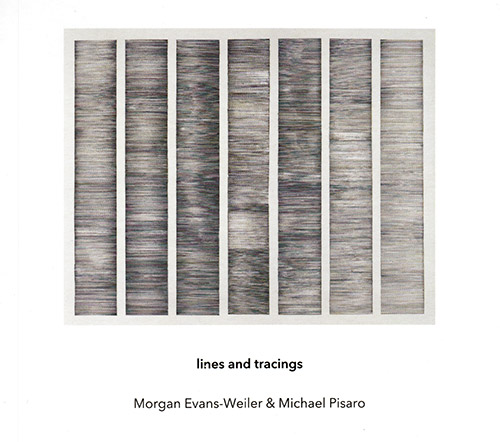
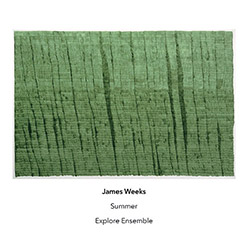

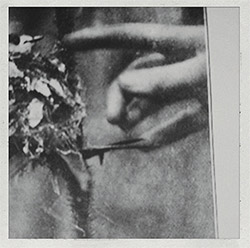


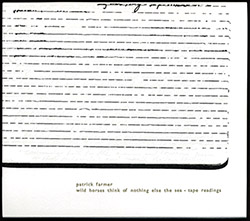

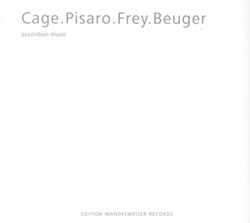
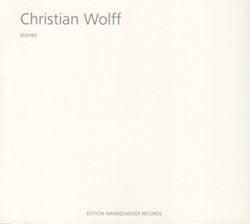

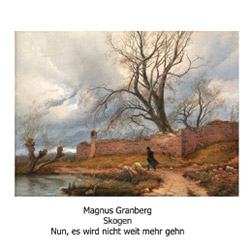


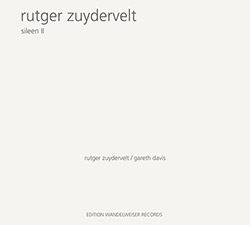

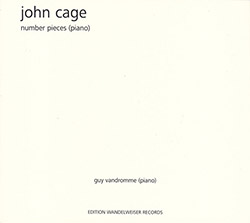
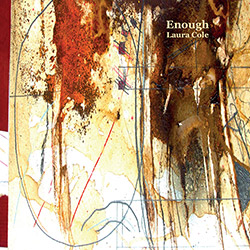
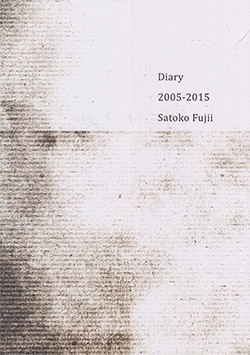
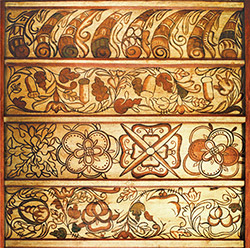

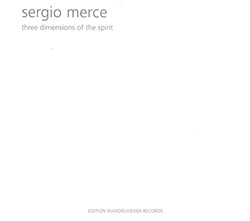



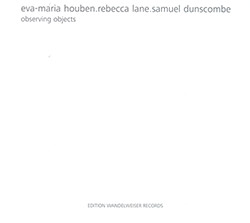


![Rodrigues, Ernesto / Nuno Torres / Guilherme Rodrigues: Whispers In The Moonlight - In Seven Movements [2CDs]](https://www.teuthida.com/productImages/misc4/35765.jpg)



![Cocks, Laura: FATHM [VINYL]](https://www.teuthida.com/productImages/misc4/36055.jpg)










![Ackerley / Prymek / Turner: All Hope With Sleeping Minds [CASSETTE]](https://www.teuthida.com/productImages/misc4/35950.jpg)
![Myers, David Lee : Tin Drop Tear [BOOK w/ DOWNLOAD]](https://www.teuthida.com/productImages/misc4/36030.jpg)



![Schindler, Udo / Sandy Ewen / Damon Smith: Munich Sound Studies Vols. 4, 5 & 6 [3 CDs]](https://www.teuthida.com/productImages/misc4/35966.jpg)






![Turbulence Orchestra & Sub-Units: Smear Out the Difficulties (Double Live) [2 CDs]](https://www.teuthida.com/productImages/misc4/36048.jpg)
![Perelman, Ivo / Tyshawn Sorey: Paralell Aesthetics [2 CDs]](https://www.teuthida.com/productImages/misc4/35871.jpg)


![Sjostrom, Harri: SoundScapes #4 Festival Berlin 2023 [3 CDs]](https://www.teuthida.com/productImages/misc4/35874.jpg)



![Glenn, Jordan: Flustered [CASSETTE]](https://www.teuthida.com/productImages/misc4/35948.jpg)


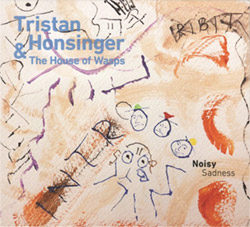
![Lindorff-Ellery, Evan: Church Recordings from Monhegan [CASSETTE]](https://www.teuthida.com/productImages/misc4/35949.jpg)
![Schindler, Udo / Werner Dafeldecker / Gunnar Geisse: Travelling Sound Images - Cognitive Transfers [Trio]](https://www.teuthida.com/productImages/misc4/35767.jpg)

![Egberth, Dennis: The Dennis Egberth Dynasty [VINYL]](https://www.teuthida.com/productImages/misc4/35549.jpg)


![Schindler, Udo / Rieko Okuda / Eric Zwang Eriksson: Disturbed Terrains [2 CDs]](https://www.teuthida.com/productImages/misc4/35330.jpg)






![Olencki, Weston : Pearls Ground Down To Powder [VINYL]](https://www.teuthida.com/productImages/misc4/35956.jpg)
![Myers, David Lee: Oculus [2CDs]](https://www.teuthida.com/productImages/misc4/35857.jpg)


![dustsceawung: dustsceawung [CASSETTE w/ Download]](https://www.teuthida.com/productImages/misc4/35753.jpg)




![Halls of the Machine: Atmospheres For Lovers And Sleepers [CASSETTE w/ DOWNLOAD]](https://www.teuthida.com/productImages/misc4/35806.jpg)



![AHC (Alexander Cooper): Lase [2 CDs]](https://www.teuthida.com/productImages/misc4/35754.jpg)



![Fagaschinski, Kai / Yan Jun : Graveyard Processions [VINYL w/ DOWNLOAD]](https://www.teuthida.com/productImages/misc4/35474.jpg)
![Brant, Cody / Carl Kruger: Smoke Detail [CASSETTE w/ DOWNLOAD]](https://www.teuthida.com/productImages/misc4/35551.jpg)








![Zorn, John / JACK Quartet: The Complete String Quartets [2 CDs]](https://www.teuthida.com/productImages/misc4/35609.jpg)

![Lonsdale, Eden: Dawnings [2 CDs]](https://www.teuthida.com/productImages/misc4/35480.jpg)







![Sanna, Claudio: Compositori Sardi Contemporanei II [2 CDs]](https://www.teuthida.com/productImages/misc4/35317.jpg)







![Zurria, Manuel: Fame di Vento [3 CDs]](https://www.teuthida.com/productImages/misc4/35167.jpg)

![Granberg, Magnus / Nattens Inbrott / Skogen: Holde Traume, Kehret Wieder! [2 CDs]](https://www.teuthida.com/productImages/misc4/35038.jpg)

![Electric Bird Noise / Derek Roddy: 8-10-22 [CD EP]](https://www.teuthida.com/productImages/misc4/35970.jpg)








![Elephant9 : Mythical River [VINYL]](https://www.teuthida.com/productImages/misc4/34624.jpg)



![Elephant9 with Terje Rypdal: Catching Fire [VINYL 2 LPs]](https://www.teuthida.com/productImages/misc4/35355.jpg)
![Deerlady (Obomsawin, Mali / Magdalena Abrego): Greatest Hits [VINYL]](https://www.teuthida.com/productImages/misc4/34876.jpg)







![Surplus 1980: Illusion of Consistency [CD]](https://www.teuthida.com/productImages/misc4/35069.jpg)
![Staiano, Moe: Away Towards the Light [VINYL + DOWNLOAD]](https://www.teuthida.com/productImages/misc4/35037.jpg)



![Caveira (Gomes / Sousa / Abras / Ferrandini): Ficar Vivo [VINYL]](https://www.teuthida.com/productImages/misc4/34643.jpg)
![Coley, Byron: Dating Tips for Touring Bands [VINYL]](https://www.teuthida.com/productImages/misc4/17906.jpg)

![Lost Kisses: My Life is Sad & Funny [DVD]](https://www.teuthida.com/productImages/misc4/lostKissesDVD.jpg)